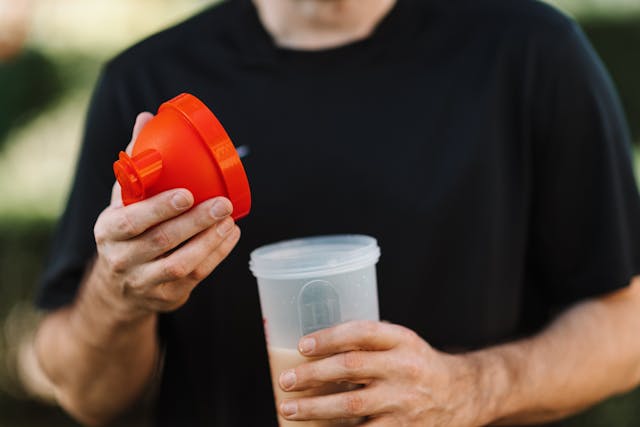Introduction
Hormones are the body’s silent messengers, controlling everything from energy levels and metabolism to mood and sleep. For men, maintaining healthy hormone balance is especially important because it directly impacts strength, vitality, and overall well-being. Unfortunately, modern lifestyles filled with stress, poor diets, and inactivity often disrupt this delicate system.
The good news? A balanced diet and consistent exercise can naturally support hormonal health. By making the right lifestyle choices, men can enhance their energy, sharpen focus, and improve long-term vitality. Let’s explore how diet and exercise play a role in supporting better hormone function and overall health.
Why Hormones Matter
Hormones regulate countless processes in the body. In men, testosterone is one of the most important, as it influences muscle growth, fat distribution, libido, and mental clarity. However, other hormones such as insulin, cortisol, and thyroid hormones are equally vital.
When these hormones are balanced, men feel energized, motivated, and healthy. When they’re not, issues such as fatigue, weight gain, mood swings, and poor sleep can follow. While aging contributes to hormonal shifts, diet and exercise remain powerful tools for restoring balance.
Diet Tips for Hormonal Health
What we eat directly affects how our hormones function. The body needs the right balance of macronutrients and micronutrients to produce and regulate hormones effectively.
1. Prioritize Healthy Fats
Hormones are made from cholesterol and fat, meaning that healthy fats are essential for their production. Include sources like:
- Avocados
- Olive oil
- Fatty fish (salmon, mackerel, sardines)
- Nuts and seeds
These fats not only aid hormone production but also reduce inflammation, supporting overall health.
2. Focus on Protein-Rich Foods
Protein is crucial for maintaining muscle mass and stabilizing blood sugar. It also promotes the release of hormones that regulate appetite and metabolism. Lean meats, eggs, Greek yogurt, and plant-based options like lentils or chickpeas are excellent choices.
3. Reduce Sugar and Processed Foods
Refined sugar and processed foods spike insulin levels, leading to imbalances in other hormones. Over time, high sugar intake increases fat storage and can lower testosterone. Opt for whole foods like fruits, vegetables, and whole grains instead.
4. Include Cruciferous Vegetables
Broccoli, cauliflower, and Brussels sprouts contain compounds that help regulate estrogen levels in men, supporting overall hormonal balance.
5. Stay Hydrated
Even mild dehydration can affect stress hormones like cortisol. Drinking enough water throughout the day keeps the body functioning at its best.
6. Don’t Forget Micronutrients
Certain vitamins and minerals play a key role in hormone production:
- Vitamin D: Linked to testosterone levels.
- Magnesium: Supports muscle and nerve function.
- Zinc: Essential for testosterone production.
Exercise Tips for Hormonal Health
Just as diet plays a key role, exercise is one of the most effective ways to naturally balance hormones. Physical activity influences testosterone, insulin sensitivity, growth hormone, and even stress hormones.
1. Strength Training
Lifting weights is one of the best ways to boost testosterone and growth hormone. Compound movements such as squats, deadlifts, and bench presses are especially effective because they engage multiple muscle groups.
2. High-Intensity Interval Training (HIIT)
Short bursts of intense exercise followed by rest periods improve insulin sensitivity and promote fat loss. HIIT workouts also stimulate testosterone production more effectively than long-duration cardio.
3. Moderate Cardio
While excessive cardio can raise cortisol and lower testosterone, moderate aerobic activity supports heart health and reduces stress. Aim for 20–30 minutes of jogging, cycling, or swimming a few times a week.
4. Rest and Recovery
Exercise places stress on the body, and rest is when hormones like testosterone and growth hormone rise to repair tissues. Overtraining without adequate recovery can backfire, increasing cortisol and reducing energy.
5. Flexibility and Stress-Relief Workouts
Practices like yoga and stretching not only improve mobility but also reduce stress hormones, supporting overall hormonal balance.
Lifestyle Habits That Strengthen Diet and Exercise
Diet and exercise are the foundation of hormone support, but a few lifestyle factors can amplify results:
- Sleep: Hormone production, particularly testosterone and growth hormone, peaks during deep sleep. Aim for 7–9 hours per night.
- Stress Management: Chronic stress keeps cortisol levels high, interfering with other hormones. Practices like meditation or breathing exercises help.
- Consistency: Sporadic efforts won’t deliver lasting benefits. Consistency in diet and exercise is the key to long-term balance.
When Diet and Exercise May Not Be Enough
For some men, diet and exercise alone may not fully address hormonal imbalances—especially as they age or face underlying medical conditions. In such cases, medical guidance can provide solutions. Treatments like Testosterone Replacement Therapy are available under professional supervision, helping men restore hormone levels safely.
It’s important to note that medical treatments should never replace healthy lifestyle habits. Instead, they work best when combined with proper nutrition, regular exercise, and stress management.
Myths About Hormones and Lifestyle
There are plenty of misconceptions about hormones and how to manage them. Let’s clear up a few:
- “Eating more protein alone will boost testosterone.” Protein is important, but balance with fats and carbs is essential.
- “Running every day is the best way to stay fit.” Excessive cardio can actually lower testosterone if not balanced with strength training.
- “Supplements are enough.” While supplements can support, they can’t replace a healthy diet and consistent exercise.
The Long-Term Benefits of Hormone Support
Supporting hormones through diet and exercise offers more than short-term energy boosts. Men who prioritize these habits often experience:
- Improved muscle tone and strength
- Better mood and emotional stability
- Higher energy levels and motivation
- Sharper focus and mental clarity
- Reduced risk of chronic illnesses like diabetes and heart disease
In other words, it’s not just about looking better—it’s about living better.
Final Thoughts
Hormonal health is the foundation of vitality for men. While aging and modern lifestyles can disrupt hormone levels, diet and exercise remain powerful tools for support. Eating nutrient-rich foods, avoiding processed sugars, and incorporating healthy fats fuel the body’s natural hormone production. Pairing that with strength training, HIIT, and adequate rest creates an environment where hormones can thrive.
When lifestyle changes are not enough, professional medical guidance may be necessary, but for most men, consistent daily habits can make a remarkable difference. By prioritizing the right foods, workouts, and recovery, men can enjoy balanced hormones, stronger bodies, and a healthier, more energetic life.












